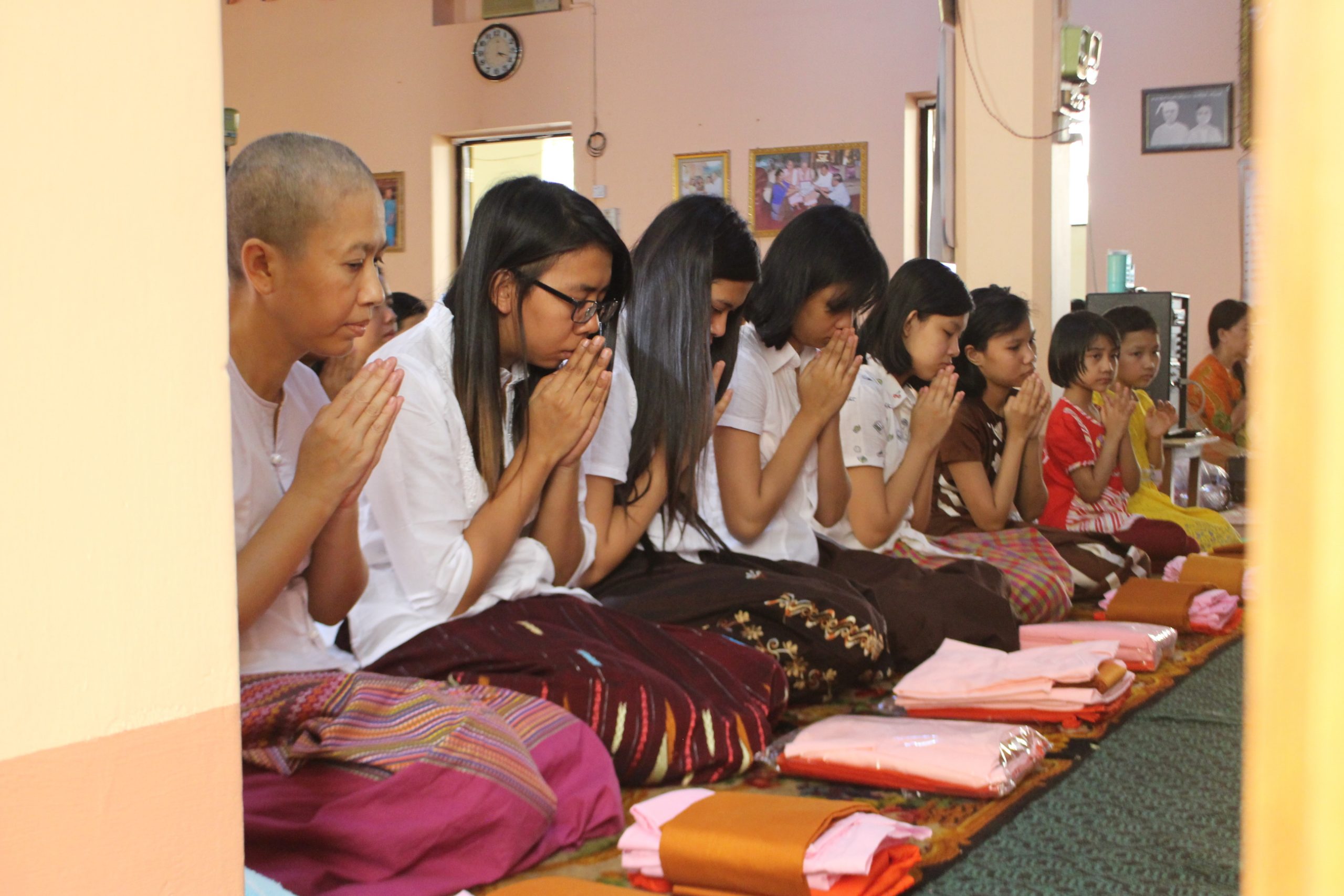The Buddhist New Year celebration, “Thingyan,” is synonymous with water festival in Burma. But one side of the annual holiday often forgotten is the spiritual roots of the festival.
DVB was invited this week inside nunneries in Rangoon to witness the sacred ceremony of laywomen becoming nuns temporarily over the Thingyan holiday.
The Buddhist new year falls in April and is celebrated across the country with family feasts and reunions, spring cleaning of the home and, for many devout Buddhists, an opportunity to become nuns or novices for the week-long holiday.
Lecturer at International Theravada Buddhist Missionary University Myangone Dr Yuzana Nyani explains, “When people think of Thingyan, they think of fun and throwing water,” referring to the large-scale party that now dominates the streets of Burmam’s major cities, “but that fun or joy is only temporary.”
She adds, “For us nuns, joining the nunhood is priceless. It’s very peaceful.”




Any Buddhist of any age or background can take the oath and join the religious order as a way of making merit, “to reach nirvana, free from any suffering.”
On day one of the celebrations, girls and women join senior nuns in a sermon with their families before receiving a blessing, cutting off their hair and donning pink robes.
Ten-year-old Venus told DVB she “felt free and cool” after her head was shaved. She said the hardest part was the first day because she was hungry. But on the second day she proudly told this reporter she “stayed calm.” The life of a nun is one of strict discipline involving morning meditation and collecting of food donations in the streets, followed by a day of fasting after noon and more mediation and classes on the teachings of the Buddha.
Laywomen and laymen choose to become nuns for many reasons. For young girls such as 12-year-old May Thet Chayay, she wanted to please and show respect to her parents. It’s expected that at least once in a Buddhist’s life they will join a monastery or nunnery.
For others such as 47-year-old San Yu May, she chose to become a nun for the second time as she enjoyed the peace she found and wanted to gain merit and show her devotion to the Buddha.
Teachers at the nunnery say the number of people choosing to become nuns has been increasing over the years. When asked why, teacher Daw Vijjesi replied, “Because more believe that becoming a nun is peaceful and becoming a nun is totally different, noble and meaningful. It’s a kind of joy you can only experience yourself.”
Yuzana Nyani, the lecturer, adds, “Everyone has the chance to do something good. But being a nun, we are more devoted to do good deeds and merit, so we feel a spiritual value and we personally feel very fortunate that our parents have allowed us to become a nun.”


The connection with cutting off one’s hair is key to becoming a nun. It becomes “devalued” when it is removed from the body in the Buddhist belief as Buddha himself shaved his head. While nuns slowly and carefully shaved the new nuns’ heads with a single razor, Yuzana Nyani stated that “for nuns to cut off and shave off their hair, it reminds us that it [hair] really has no sense or spiritual value. It’s a good reminder that while they are on our body, we try to beautify our hair and skin … but when it is removed from the body it doesn’t have any worth.”
Thingyan means “change,” moving from the past year into the next, and while social media over the next week will be overwhelmed with photos of revellers posting water photos, the nuns will be celebrating too in a more peaceful way.









